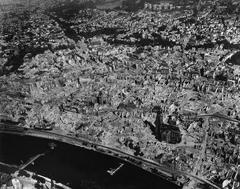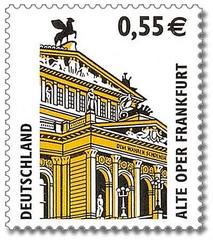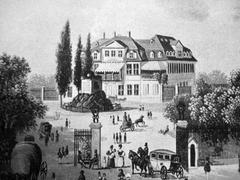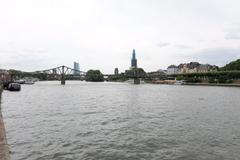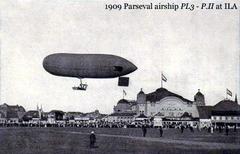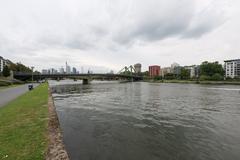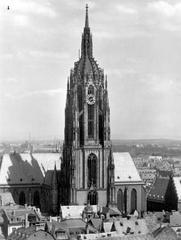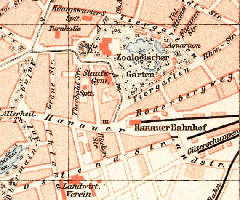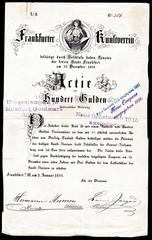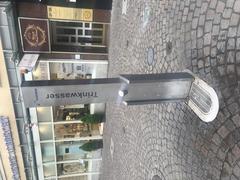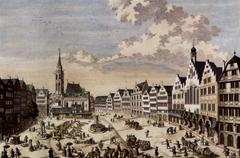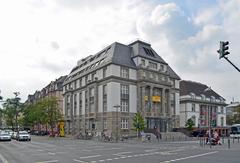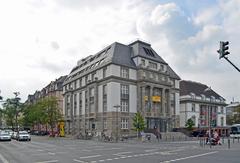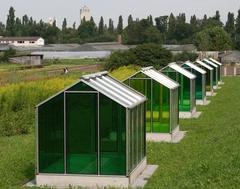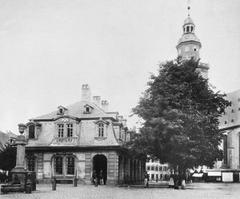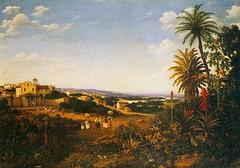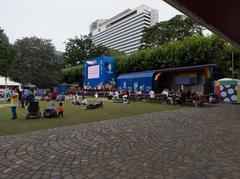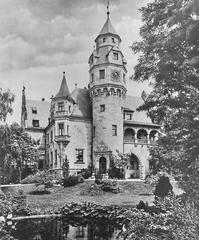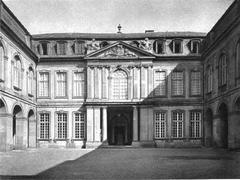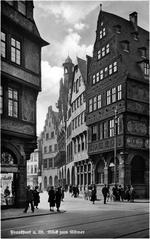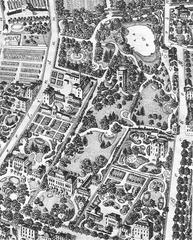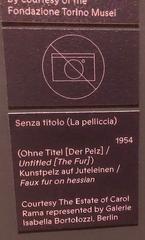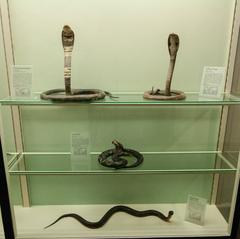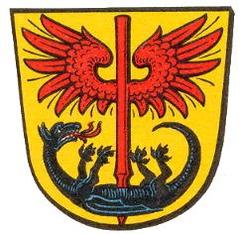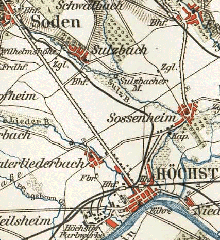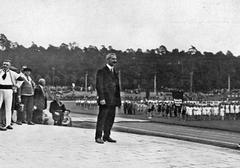Transport Museum Frankfurt am Main: Comprehensive Guide to Visiting Hours, Tickets, and Historical Insights
Date: 04/07/2025
Introduction
The Transport Museum Frankfurt am Main (Verkehrsmuseum Frankfurt am Main) is a cornerstone of the city’s cultural and historical landscape, offering a captivating exploration of urban and regional transport evolution. Housed in historic tram depots, the museum preserves and exhibits a remarkable collection that chronicles Frankfurt’s transformation from its first horse-drawn tramways in the late 19th century to the sophisticated rapid transit systems of today. Its rich displays and immersive atmosphere make it an essential stop for families, history enthusiasts, and transport aficionados alike.
Beyond showcasing meticulously restored vehicles such as the Horse-Drawn Tram No. 1 (1872) and iconic electric tram models, the museum serves as a vibrant educational hub. Through workshops, guided tours, and special events—including vintage tram rides—it plays a key role in connecting visitors to the broader story of Frankfurt’s urban development. Even as major renovations are underway in 2025 to modernize exhibition spaces and enhance accessibility, digital resources like virtual tours and mobile apps keep the museum’s treasures accessible to the public.
Strategically located with excellent public transport connections and in proximity to other landmark attractions, the Transport Museum is integral to Frankfurt’s Museumsufer and overall tourism appeal. For the latest on hours, ticketing, and events, visitors should consult the official museum website, as well as trusted sources such as Atlas Obscura and HSF Frankfurt.
Table of Contents
- Introduction and Museum Overview
- Historical Background and Significance
- Architecture and Curatorial Evolution
- Key Collections and Artifacts
- Visitor Information: Hours, Tickets, Accessibility, and Tips
- Special Events and Educational Programs
- Preservation and Future Directions
- The Museum’s Role in Frankfurt’s Identity and Tourism
- German-Language Section: Museumsbestand und Besuchsinformationen
- Visiting Hours, Tickets, and Practical Guidance
- Renovation Updates and Digital Engagement (2025)
- Nearby Attractions and Travel Tips
- Frequently Asked Questions (FAQ)
- Visual and Multimedia Resources
- Contact and Further Information
- Conclusion and Call to Action
- References
Discover the Transport Museum Frankfurt am Main: Urban Mobility Through the Ages
Nestled in a historic tram depot, the Transport Museum Frankfurt am Main offers an immersive experience into the city’s pivotal role in transport innovation. Its exhibitions span from the earliest horse-drawn trams to modern S-Bahn and U-Bahn systems, providing a comprehensive look at the technological and social forces that have shaped Frankfurt’s growth.
Historical Background and Significance
Founded in the mid-20th century, the museum was established to document and celebrate the development of public and private transportation in Frankfurt and the Hesse region. The collection captures the city’s transformation from a medieval trading hub to a bustling modern metropolis, with artifacts marking key milestones from the first tramways in 1872 to contemporary rapid transit.
Architectural and Curatorial Evolution
The museum’s location in a former tram depot is itself a significant artifact, featuring preserved ironwork, cobblestone floors, and original tracks. Exhibits are thoughtfully arranged in chronological order, guiding visitors through the electrification of trams, the rise of motorized buses, and the expansion of citywide transit systems.
Key Collections and Artifacts
Highlights of the museum’s collection include:
- Horse-Drawn Tram No. 1 (1872): An emblem of Frankfurt’s early public transport.
- Electric Tram Models (1899–1950s): Featuring “K-Wagen” and “L-Wagen,” representing modernization.
- Vintage Buses (1920s–1970s): Illustrating the evolution of urban mobility.
- S-Bahn and U-Bahn Memorabilia: Scale models, signage, and operational panels.
- Photographic Archives and Technical Drawings: Providing context and depth.
- Uniforms, Tickets, and Promotional Materials: Offering a glimpse into daily life and transport culture.
Visitor Information: Hours, Tickets, Accessibility, and Tips
Opening Hours
- Standard: Tuesday to Sunday, 10:00 AM – 6:00 PM; closed Mondays.
- Special Events: Vintage tram rides and open-air exhibitions are hosted periodically.
- Renovation Notice: As of mid-2025, the museum is undergoing major renovations. Check the official website for the latest opening hours and digital engagement options.
Ticket Prices
- Adults: €8
- Reduced (students, seniors): €5
- Children under 16: Free
- Special rates apply for school groups and associations.
Guided Tours
Guided tours, available on weekends and by appointment, are highly recommended for a deeper dive into the exhibits. English-language tours may be available upon request.
Accessibility
The museum is committed to barrier-free access, with elevators and accessible restrooms. Some historic areas may have uneven flooring; visitors with specific needs should contact the museum in advance or consult the Frankfurt Accessibility Guide.
Getting There
Located in the Schwanheim district, the museum is easily reached by public transport—tram lines 12 or 14 stop directly at the museum. Parking is available nearby but can be limited during events.
Visitor Tips
- Plan Ahead: Visiting hours may be affected by renovations or events—always check before visiting.
- Photography: Allowed for personal use; flash and tripods are prohibited.
- Language: Most exhibits are in German, but staff can assist in English.
- Combine Your Visit: Take advantage of the museum’s proximity to other Museumsufer attractions.
Special Events and Educational Programs
The museum regularly hosts thematic exhibitions, vintage tram rides, and open-air displays of restored vehicles. Workshops, interactive programs, and collaborations with local universities and the Frankfurt Transport Authority foster an appreciation for the history and technology of urban mobility.
Preservation and Future Directions
Restoration workshops blend traditional craftsmanship with modern conservation techniques to maintain the museum’s fleet of historic vehicles. Digital initiatives—including virtual tours and online archives—expand public access and engagement. The museum also participates in European heritage projects.
The Museum’s Role in Frankfurt’s Identity and Tourism
Situated on the Museumsufer, the Transport Museum complements Frankfurt’s rich array of cultural institutions. It is a highlight for anyone interested in the city’s history, urban development, and technological achievements.
Verkehrsmuseum Frankfurt am Main: Besuchsinformationen, Sammlungen und Highlights
Museumsbestand: Die Fahrzeugsammlung
Das Verkehrsmuseum Frankfurt am Main bewahrt eine der umfassendsten Sammlungen zur Geschichte des städtischen Nahverkehrs im Rhein-Main-Gebiet. Herausragende Exponate sind:
- Pferdebahnwagen (spätes 19. Jahrhundert)
- Elektrische Triebwagen (älteste Frankfurter Straßenbahnen)
- Beiwagen und Großraumwagen (Nachkriegszeit)
- Sonderfahrzeuge (Arbeitswagen, Schneepflüge, Dienstfahrzeuge)
Viele Fahrzeuge sind restauriert und werden für Sonderfahrten genutzt. Die Sammlung dokumentiert die technische Entwicklung des Frankfurter Nahverkehrs nahezu lückenlos (Wikipedia Verkehrsmuseum Frankfurt).
Weitere Exponate und Themenschwerpunkte
Neben Fahrzeugen gibt es historische Fahrkartenautomaten, Uniformen, Signaltechnik, Modelle, Pläne und multimediale Installationen, die die Geschichte des Nahverkehrs erlebbar machen.
Sonderausstellungen und Veranstaltungen
Der Verein Historische Straßenbahn Frankfurt (HSF) organisiert regelmäßig Sonderausstellungen und Themenfahrten, wie den Nikolaus-Express oder die „Nacht der Museen“ (Wikipedia Verkehrsmuseum Frankfurt).
Archiv und Forschung
Das Museumsarchiv dient als Unternehmensarchiv der VGF und steht Forschenden zur Verfügung.
Nutzung als Veranstaltungsort
Das Museum bietet Räumlichkeiten für Firmen- und Privatveranstaltungen sowie städtische Events.
Aktuelle Situation
Seit Anfang 2022 ist die Westhalle wegen Brandschutzmängeln geschlossen. Während der Sanierung sind viele Exponate nicht zugänglich. Aktuelle Besuchsinformationen finden Sie auf der offiziellen Webseite.
Visiting Hours, Tickets, and Practical Guidance
Visiting Hours
- Regular: Sundays and public holidays, 10:00 AM – 5:00 PM (excluding Christmas Day).
- Renovation: Confirm updated hours during the renovation period.
Tickets and Admission
- Adults: €3.00
- Children: €1.00
- Students/Seniors: €2.00
- Special group rates are available (Atlas Obscura).
Accessibility
Main exhibition halls are wheelchair accessible; some historic areas may have limited access.
Facilities
- Restrooms (accessible)
- Museum shop with books, models, and souvenirs
- Seating areas throughout the museum
- No on-site café, but local eateries are nearby
Renovation Updates and Digital Engagement (2025)
The museum is undergoing a major modernization, including:
- Structural Upgrades: Improved safety and accessibility in historic halls
- Exhibition Enhancements: Interactive digital displays and updated interpretive materials
- Visitor Amenities: New rest areas, better signage, and accessible facilities
- Sustainability: Energy-efficient systems and eco-friendly materials
During closure, visitors can:
- Download the “Verkehrsmuseum FFM” app for virtual tours and updates (hsf-ffm.de)
- Follow @hsf.frankfurt on social platforms for news and behind-the-scenes content
- Subscribe to newsletters or join messaging channels for reopening updates
Nearby Attractions and Travel Tips
Combine your museum visit with other top Frankfurt attractions:
- Historic Tram Rides (offered by HSF)
- Museumsufer: German Film Museum, Jewish Museum, and more
- Römerberg, Altstadt (Old Town), Palmengarten, and Grüneburgpark
- Take advantage of free museum days like “SaTOURday” (timeout.com)
Frequently Asked Questions (FAQ)
Q: What are the current visiting hours?
A: Sundays and public holidays, 10:00 AM – 5:00 PM (subject to change during renovations).
Q: How much are tickets?
A: Adults €3, children €1, students/seniors €2.
Q: Is the museum wheelchair accessible?
A: Most areas are accessible; check in advance for details.
Q: Are tours available in English?
A: Yes, on request.
Q: Can I take photos?
A: Photography for personal use is allowed; no flash or tripods.
Visual and Multimedia Resources
High-quality photos, virtual tours, and alt-text-optimized images are available on the official website. These resources enhance both SEO and visitor engagement.
Contact and Further Information
For up-to-date details, consult these resources or contact the Verein Historische Straßenbahn Frankfurt (HSF).
Conclusion and Call to Action
The Transport Museum Frankfurt am Main stands as a testament to the city’s dynamic transport history and innovative spirit. Whether you’re a family, tourist, or passionate enthusiast, the museum offers a unique window into more than a century of urban mobility. Despite the current renovations, digital resources and virtual tours keep the museum’s legacy alive. Plan your visit, stay informed via official channels, and enhance your experience by downloading the Audiala app for guided tours and updates. Follow the museum on social media to remain connected and be among the first to explore the revitalized museum upon reopening.
References
- Transport Museum Frankfurt Official Website
- Verkehrsmuseum Frankfurt am Main – Wikipedia
- Atlas Obscura: Transport Museum Frankfurt
- HSF Frankfurt

